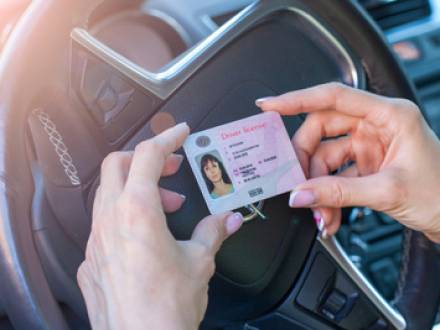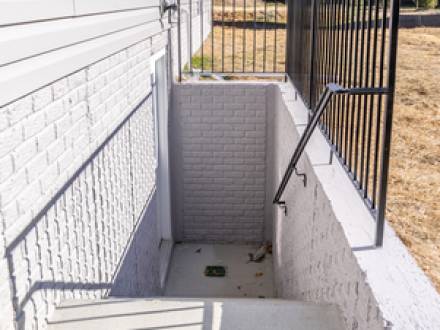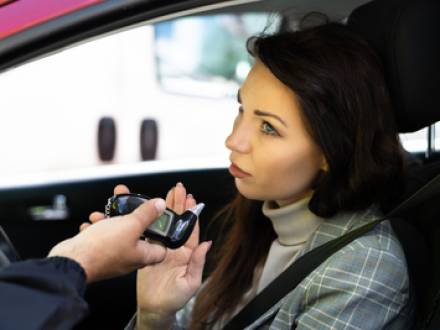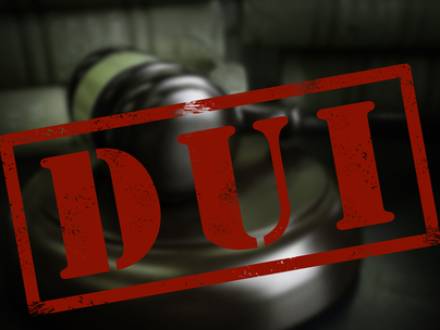Recent Blog Posts
Do I Need a Lawyer to Buy a House in Connecticut?
 Buying a home is often the largest financial transaction in someone’s life. Having legal guidance helps reduce risk and confusion during the process. In Connecticut, you are not legally required to hire a lawyer to buy a house, but many buyers do. Home purchases in the state remain very active. In 2025, Connecticut saw about 35,275 homes sold statewide, reflecting steady demand and a fast-moving real estate market.
Buying a home is often the largest financial transaction in someone’s life. Having legal guidance helps reduce risk and confusion during the process. In Connecticut, you are not legally required to hire a lawyer to buy a house, but many buyers do. Home purchases in the state remain very active. In 2025, Connecticut saw about 35,275 homes sold statewide, reflecting steady demand and a fast-moving real estate market.
In Connecticut, lawyers often play a central role in most residential real estate closings. If you plan on buying a home in 2026, our Stamford, CT real estate lawyer can help make sure your purchase is handled correctly.
Connecticut’s First-Time DUI Offender Programs
 A first-time DUI arrest can feel overwhelming, especially if you have never been in trouble before. Many people want to know if there is a way to avoid a conviction and move forward. In Connecticut, diversionary options are a real part of the DUI system. For example, Connecticut Judicial Branch statistics for fiscal year 2024–2025 show 4,415 OUI cases were disposed of as "dismissed," which often happens after a person successfully completes a first-time offender education program.
A first-time DUI arrest can feel overwhelming, especially if you have never been in trouble before. Many people want to know if there is a way to avoid a conviction and move forward. In Connecticut, diversionary options are a real part of the DUI system. For example, Connecticut Judicial Branch statistics for fiscal year 2024–2025 show 4,415 OUI cases were disposed of as "dismissed," which often happens after a person successfully completes a first-time offender education program.
As of 2026, Connecticut courts still offer first-time offender options in qualifying cases, but approval is never automatic, and the requirements are strict. Our Fairfield County, CT DUI defense lawyer can help you understand whether a first-time program may fit your situation and how to apply.
What Are the Penalties for a First-Offense DUI in Connecticut?
 As of 2026, a first-offense DUI in Connecticut can result in license suspension, fines, mandatory alcohol education, and possible jail time. This is true even if no crash occurred. Many people are surprised to learn that a first DUI in Connecticut still comes with serious penalties, even if they have never been in trouble before.
As of 2026, a first-offense DUI in Connecticut can result in license suspension, fines, mandatory alcohol education, and possible jail time. This is true even if no crash occurred. Many people are surprised to learn that a first DUI in Connecticut still comes with serious penalties, even if they have never been in trouble before.
DUI charges are common nationwide. In 2025, law enforcement agencies reported more than 800,000 DUI arrests across the United States in the prior year, showing how frequently drivers face these charges.
If you were arrested in Fairfield County, understanding the penalties and timelines tied to a first DUI is critical. A Stamford, CT DUI defense lawyer can help you understand what happens next and how to protect yourself early in the process.
Trying a Juvenile as an Adult in Connecticut
 As of 2026, Connecticut law still allows certain juvenile cases to be transferred to adult court based on age and the type of offense alleged. These cases usually involve serious charges and can move quickly, often catching families off guard.
As of 2026, Connecticut law still allows certain juvenile cases to be transferred to adult court based on age and the type of offense alleged. These cases usually involve serious charges and can move quickly, often catching families off guard.
In 2025, the Prison Policy Initiative reported that about 31,900 children and adolescents were confined in juvenile justice facilities nationwide. When this happens, the consequences can follow a child for years, which makes early understanding and guidance especially important.
If your child is facing a charge that could end up being tried in adult court, you are likely dealing with fear, uncertainty, and the need to make urgent decisions. Speaking with a Fairfield County, CT juvenile defense lawyer early can help you understand what is happening and what steps can be taken to protect your child’s future.
Can I Get a Hardship License After a DUI in Connecticut?
 Connecticut law enforcement sees many DUI stops and charges every year. For example, state police reported 35 DUI-related arrests during the 2025 Labor Day weekend alone. If you have lost your license because of a DUI charge, Law Offices of Daniel P. Weiner can help you understand your options.
Connecticut law enforcement sees many DUI stops and charges every year. For example, state police reported 35 DUI-related arrests during the 2025 Labor Day weekend alone. If you have lost your license because of a DUI charge, Law Offices of Daniel P. Weiner can help you understand your options.
In Connecticut, some drivers may be able to drive again on a limited basis. It depends on the details of your case. Contact us today to speak with a Fairfield County, CT DUI defense lawyer who has helped people facing DUI-related issues for years.
What Is a Hardship License in Connecticut?
Connecticut does not officially use the term "hardship license." Instead, the state allows limited driving through the Ignition Interlock Device Program (IID).
An IID is installed in your vehicle, and you must blow into the device before the car will start. If alcohol is detected, the vehicle will not turn on. This program allows some drivers to drive under strict rules instead of serving a full suspension, with no driving allowed.
Can Passengers Face Charges for a DUI Stop in Connecticut?
 Being a passenger during a DUI stop can be stressful, especially if police begin asking questions or ordering everyone out of the vehicle. Many people assume passengers cannot get into legal trouble because they were not driving. Typically, passengers are not charged with DUI, but they can face other criminal charges depending on what happens during the stop.
Being a passenger during a DUI stop can be stressful, especially if police begin asking questions or ordering everyone out of the vehicle. Many people assume passengers cannot get into legal trouble because they were not driving. Typically, passengers are not charged with DUI, but they can face other criminal charges depending on what happens during the stop.
If you were a passenger during a DUI stop, speaking with a Stamford, CT DUI defense lawyer can help you understand your rights and risks. As of 2025, Connecticut DUI laws focus primarily on drivers, but passengers are not completely immune from legal consequences.
Can a Passenger Be Charged With DUI in Connecticut?
In most cases, a passenger is not going to be charged with driving under the influence, primarily because they were not driving. Connecticut’s DUI law applies to people who operate or have physical control of a motor vehicle.
CT Juvenile Interrogations: What Parents Must Know
 Connecticut parents could be shocked to find their child was questioned by the police without a parent present. More unpleasant surprises could be in store when they find that statements made by their child are being used as evidence against him or her. While Connecticut has strict notification requirements, these rules do not always prevent teens from speaking with officers without a parent present. And since teens are vulnerable to pressure by police, these statements could turn out to be involuntary, unreliable, or legally inadmissible.
Connecticut parents could be shocked to find their child was questioned by the police without a parent present. More unpleasant surprises could be in store when they find that statements made by their child are being used as evidence against him or her. While Connecticut has strict notification requirements, these rules do not always prevent teens from speaking with officers without a parent present. And since teens are vulnerable to pressure by police, these statements could turn out to be involuntary, unreliable, or legally inadmissible.
In fact, teenagers are much more likely than adults to give false or unreliable statements, and in Connecticut’s fast-moving juvenile system, this can turn routine questioning into a constitutional minefield when parents are not present. Parents must understand when a police interview crosses constitutional lines so they can properly protect their child’s future. A Fairfield County, CT juvenile crimes lawyer can help protect your child’s rights and guide you through the process.
Basement Classification Disputes in Connecticut Home Sales
 In Connecticut, whether a space is legally considered a "basement" or a "living area" can dramatically affect appraisal value, property taxes, and marketability. Even those who understand this concept may not fully comprehend that a basement’s classification is determined by the grade plane, which, in its simplest form, means how much of a level is above ground.
In Connecticut, whether a space is legally considered a "basement" or a "living area" can dramatically affect appraisal value, property taxes, and marketability. Even those who understand this concept may not fully comprehend that a basement’s classification is determined by the grade plane, which, in its simplest form, means how much of a level is above ground.
A Connecticut real estate closing can stall out on grade plane when a buyer believes he or she is purchasing a home with 3,000 square feet of living space, only to find the appraiser dramatically reduced that number by deeming part of the home "below grade." Since basement classification depends solely on the grade plan rather than the quality of the finishes, thousands of square feet can potentially be excluded from the home’s valuation.
Even a "walkout basement" that feels like a first floor can be considered below grade for appraisal and zoning purposes. When this occurs, a loan approval can be in jeopardy, a contract may need to be renegotiated, or the deal may fall apart entirely. An experienced Fairfield County, CT real estate lawyer can help buyers and sellers understand grade plane and how it could affect their current real estate deal.
How CT Police Misapply the 20-Minute DUI Observation Rule
 One of the most powerful yet misunderstood defense tools in Connecticut DUI cases is the state’s mandatory 20-minute observation rule. This rule states that before administering a breath test, police officers must continuously observe the driver to ensure there is no burping, smoking, regurgitation, vomiting, or the placement of any substance in the mouth.
One of the most powerful yet misunderstood defense tools in Connecticut DUI cases is the state’s mandatory 20-minute observation rule. This rule states that before administering a breath test, police officers must continuously observe the driver to ensure there is no burping, smoking, regurgitation, vomiting, or the placement of any substance in the mouth.
If this procedure is not followed precisely, the accuracy of the breath test may be compromised, and if the breath test is compromised, the results may be suppressed. Body cam footage in case after case reveals gaps, distractions, and protocol violations that can significantly undermine the accuracy of the Intoxilyzer's 20-minute rule.
When law enforcement officers rush, multitask, turn away, rely on assumptions, or overlook clear signs of burping or mouth alcohol, the test results become scientifically unreliable. A Connecticut DUI (CGS Sections 14-227a and 227b) can literally change the course of your life, yet if the 20-minute rule is not strictly followed, your breathalyzer results may not be accurate. A Fairfield County, CT DUI lawyer can build a strong defense on your behalf while addressing any inaccuracies in the breath test.
Can an IID Violation Lead to a New DUI in Connecticut?
 Ignition Interlock Devices (IIDs) are meant to prevent drivers from operating a vehicle while impaired, following a Connecticut DUI conviction. Many drivers with a court-ordered IID (C.G.S. § 14-227a) fail to realize that an IID violation can sometimes trigger a new DUI investigation. Under Connecticut law, a failed IID breath test, a missed rolling retest, a tampering alert, or allowing someone else to blow into the device can result in criminal charges, DMV sanctions, and extended IID requirements.
Ignition Interlock Devices (IIDs) are meant to prevent drivers from operating a vehicle while impaired, following a Connecticut DUI conviction. Many drivers with a court-ordered IID (C.G.S. § 14-227a) fail to realize that an IID violation can sometimes trigger a new DUI investigation. Under Connecticut law, a failed IID breath test, a missed rolling retest, a tampering alert, or allowing someone else to blow into the device can result in criminal charges, DMV sanctions, and extended IID requirements.
Understanding how IID violations lead to new DUI allegations is critical for anyone currently using an IID in Connecticut. To fully understand how Connecticut law gives officers, prosecutors, and the DMV broad authority to treat IID failures as evidence of new impaired driving, it can be beneficial to speak to an experienced Fairfield County, CT DUI lawyer.







